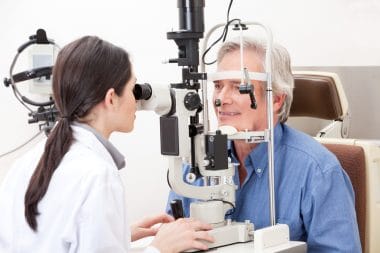Eye health is one of the most important things you can have when it comes to a happy and fulfilling life. It’s normal for your eyes to decline with age, but there are ways to prevent the severity of this and ensure that your vision remains optimal.
One of the key ways in which you can optimize your eye health is through the intake of nutrients. Nutrients help your eyes withstand various threats, but what are those threats? Before we take a look at the nutrients themselves, let’s consider some of the most common eye diseases.
EYE DISEASES
Eyes are an important sense, so it’s essential that you keep an eye out for signs of eye disease. Eye diseases can come in many forms. Here are three of the most common:
DRY EYE DISEASE: Dry eye disease is characterized by a lack of tear fluid. This causes your eyes to regularly dry up, which can be particularly uncomfortable and can cause problems with vision.
MACULAR DEGENERATION: This is one of the leading causes of blindness in older people. The macula is basically the central retina, and once it starts to degenerate your vision will suffer.
CATARACTS: With cataracts your eyes become clouded, and it’s the main cause of blindness around the world.
Although there are a number of factors that can cause eye-related issues, your diet can reduce the likelihood and, in some cases, prevent complications. So without further ado, here are some of the best nutrients that will optimize your eye health.
OMEGA 3 FATTY ACIDS Omega 3 fatty acids are helpful for eye health because they contain some of the key components that make up our eyes. EPA and DHA are the two long-chain omega-3 fatty acids that are found in people’s eyes and they can be found in foods such as oily fish.
There are also plenty of supplements that will provide this part of your diet. EPA and DHA supplements have been shown to reduce symptoms of dry eye disease when taken daily for a period of three months. They can also reduce the likelihood of diabetic retinopathy.
VITAMIN C
Vitamin C is excellent for your overall immune health, but it is also good for the eyes. This is because your eyes require antioxidants.
The liquid that makes up the outer layer of the eye is largely comprised of Vitamin C, so it is important that people have enough of it in their diets. Vitamin C is found in many fruits and supplements that can be taken in tablet and drink form.
VITAMIN A
Vitamin A is crucial for maintaining the function of your photoreceptors. Photoreceptors are the cells in your eyes that sense light, which is how we take in visual information and view the world.
Vitamin A deficiency is one of the most common causes of sight loss and blindness in the world, which is why it’s so important to ensure you’re receiving enough of it. Technically vitamin A is only found in animal-derived food sources, such as eggs. Despite this, humans are able to convert certain plant based foods into Vitamin A.
The best source of Vitamin A in vegetables comes in kale, spinach, and carrots. Leafy greens often contain the most Vitamin A, so try to include them in a few of your meals each week.
LUTEIN AND ZEAXANTHIN Lutein and Zeaxanthin act as a sunblock around the central region of the retina. This region is called the macula, and it is a layer of light-sensitive cells.
Without enough lutein and zeaxanthin, you can suffer from macular degeneration so it’s important that you have a high intake of these nutrients. They act together to protect your eyes from blue light, which can be very harmful.
These nutrients can be found in a variety of sources. Leafy greens such as spinach, kale, and parsley are good sources of lutein and zeaxanthin, but some argue that the best source is egg yolk. Lutein and zeaxanthin are absorbed better when consumed with a high-fat content, which is what makes egg yolk so effective. You can increase the fat content of your vegetables by adding healthy oils to your meal.
GAMMA-LINOLENIC ACID Gamma-linolenic acid is another omega fatty acid that helps the eyes function. It’s harder to find this in our diets, but there are sources such as primrose oil and starflower oil.
This omega-6 fatty acid has been shown to reduce the effects of dry eye disease and can increase the overall comfort felt in your eyes.
Overall, the most important thing to keep in mind when it comes to nutrients for eye health is to keep a well-balanced diet that includes a variety of food sources and supplements.








Reply